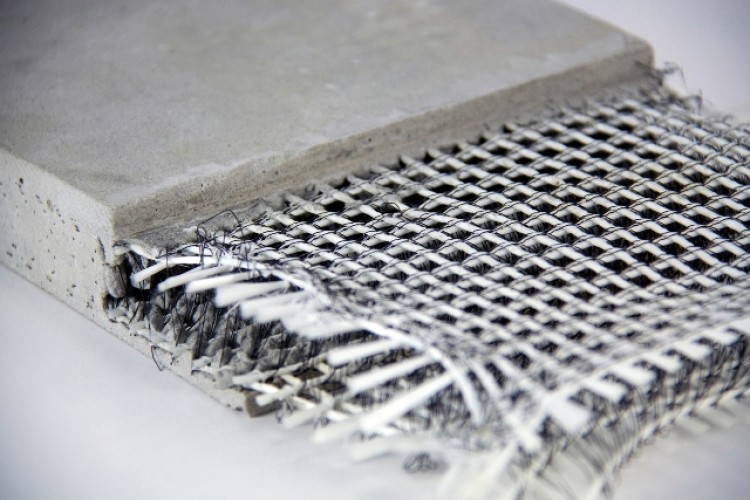Composites: The Future of Lasting Building Products
Exploring the Uses and Advantages of Recycled Composites in Modern Industries
In today's swiftly advancing industrial landscape, the utilization of recycled compounds has gathered raising focus for its possible to redefine standard production techniques. The amalgamation of recycled products with advanced composite innovations provides an encouraging opportunity for enhancing sustainability, durability, and cost-efficiency across various markets. As industries seek innovative services to address ecological concerns and boost functional performances, the consolidation of recycled composites becomes an engaging choice. This shift in the direction of sustainable practices not only aligns with worldwide conservation initiatives but likewise provides a myriad of advantages that hold the secret to forming the future of modern manufacturing approaches.
Environmental Benefits of Recycled Composites
The usage of recycled composites in modern-day markets provides significant ecological advantages, adding to the decrease of waste and the conservation of natural deposits. By incorporating recycled compounds right into making processes, markets can lower their reliance on virgin products, thus reducing the quantity of waste created and the energy required for extraction and production. This change towards utilizing recycled composites assists in diverting products from land fills, relieving the burden on waste management systems, and decreasing greenhouse gas exhausts related to typical production techniques.
Additionally, the usage of recycled compounds promotes the preservation of natural resources such as timber, minerals, and water, which are frequently depleted through the extraction and handling of resources (composites). By expanding the life-span of products through recycling, markets can help maintain ecological communities and biodiversity by decreasing the demand for new sources. On the whole, the fostering of recycled compounds in modern-day industries plays a critical duty in promoting sustainability and reducing the environmental effect of production processes
Enhanced Toughness in Product Production
With an emphasis on durability and effectiveness, including recycled composites into item production processes improves resilience and sustainability. By making use of recycled compounds, producers can create products that are not only solid but likewise immune to use and tear, making them suitable for lasting usage in various markets. The combination of various materials in recycled composites can commonly lead to improved stamina and sturdiness contrasted to traditional materials, giving a cost-efficient solution for producing resilient items.
Among the essential benefits of making use of recycled compounds in product manufacturing is the ability to tailor the product properties to meet certain longevity demands. By changing the structure and production techniques, makers can customize the recycled compounds to endure harsh environmental conditions, heavy loads, or regular use without endangering on performance. This adaptability in layout and production enables the production of very durable products that keep their honesty gradually, reducing the requirement Full Report for regular substitutes and eventually contributing to an extra sustainable manufacturing procedure.
Cost-Effectiveness and Financial Benefits
Incorporating recycled compounds right into product manufacturing not just enhances toughness and sustainability yet also uses substantial cost-effectiveness and financial advantages. Using recycled compounds can cause lowered material prices as recycled materials are often more economical than virgin products. Additionally, recycling composite materials can decrease waste disposal expenditures and lower the demand for garbage dump room, adding to overall cost savings for markets.

Technology and Design Flexibility With Recycled Compounds
Making use of recycled composites in modern sectors supplies unrivaled possibilities for technology and layout versatility. By integrating recycled materials right into composite production processes, business can push the boundaries of traditional style constraints and discover new possibilities. The versatility of recycled compounds permits the creation of intricate shapes and structures that could not be achievable with standard products.
One of the crucial advantages of recycled compounds is their capacity to be formed right into various kinds, providing designers the flexibility to try out one-of-a-kind sizes and shapes. composites. This versatility opens up a world of creative chances, making it possible for the advancement of lightweight yet durable items that fulfill the specific requirements of various industries
Furthermore, using recycled compounds promotes sustainable methods and sustains the circular economic situation by decreasing waste and lessening the ecological impact of producing procedures. This focus on green design options straightens with the growing trend in the direction of sustainability in modern industries, making recycled composites a useful source for cutting-edge and forward-thinking firms.
Applications Throughout Numerous Industries
Recycled compounds find impactful and diverse applications my review here throughout a vast variety of industries due to their special buildings and sustainability advantages. The aerospace sector advantages from recycled compounds in the manufacturing of aircraft components, where the materials' strength-to-weight that site proportion is crucial for making sure safety and efficiency. The versatility and sustainability of recycled compounds make them beneficial across different industries, driving advancement and environmental stewardship.
Final Thought
To conclude, the usage of recycled compounds in modern-day industries uses significant environmental benefits, boosted resilience in item manufacturing, cost-effectiveness, and economic advantages. The use of recycled compounds permits for innovation and style versatility throughout numerous industries. Overall, the fostering of recycled compounds provides a practical and sustainable solution for fulfilling the requirements of the sector while also reducing environmental impact.

One of the essential benefits of making use of recycled composites in product production is the capacity to customize the material homes to meet details longevity needs. Utilizing recycled compounds can lead to decreased product expenses as recycled products are frequently less pricey than virgin products. The aerospace industry advantages from recycled compounds in the manufacturing of aircraft components, where the materials' strength-to-weight ratio is important for guaranteeing safety and efficiency.